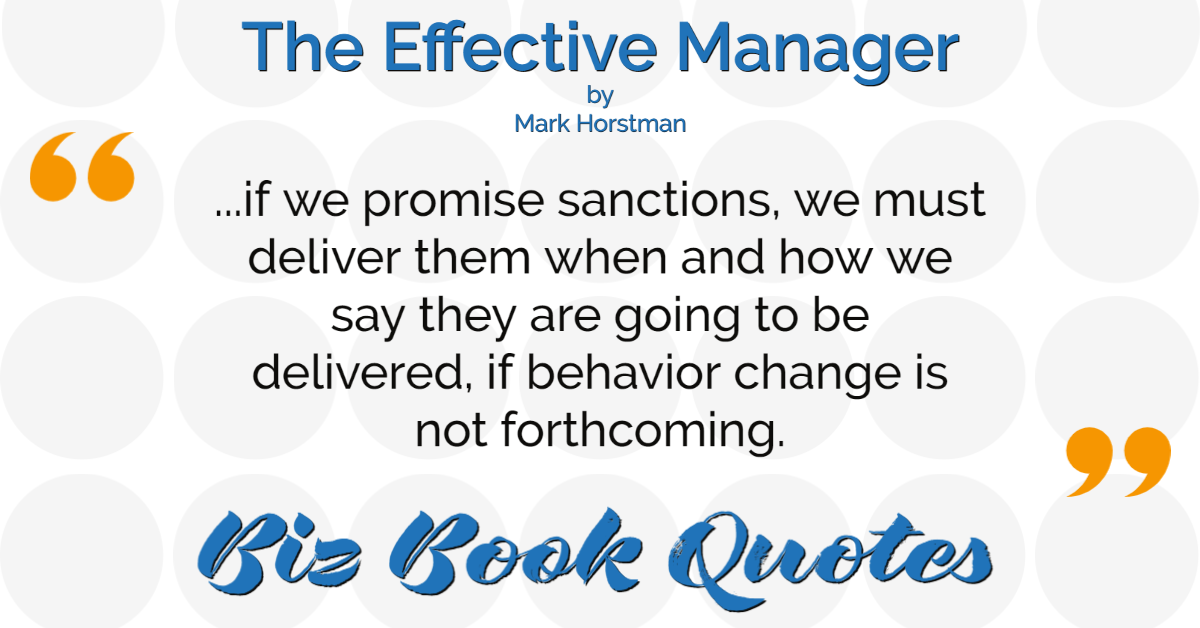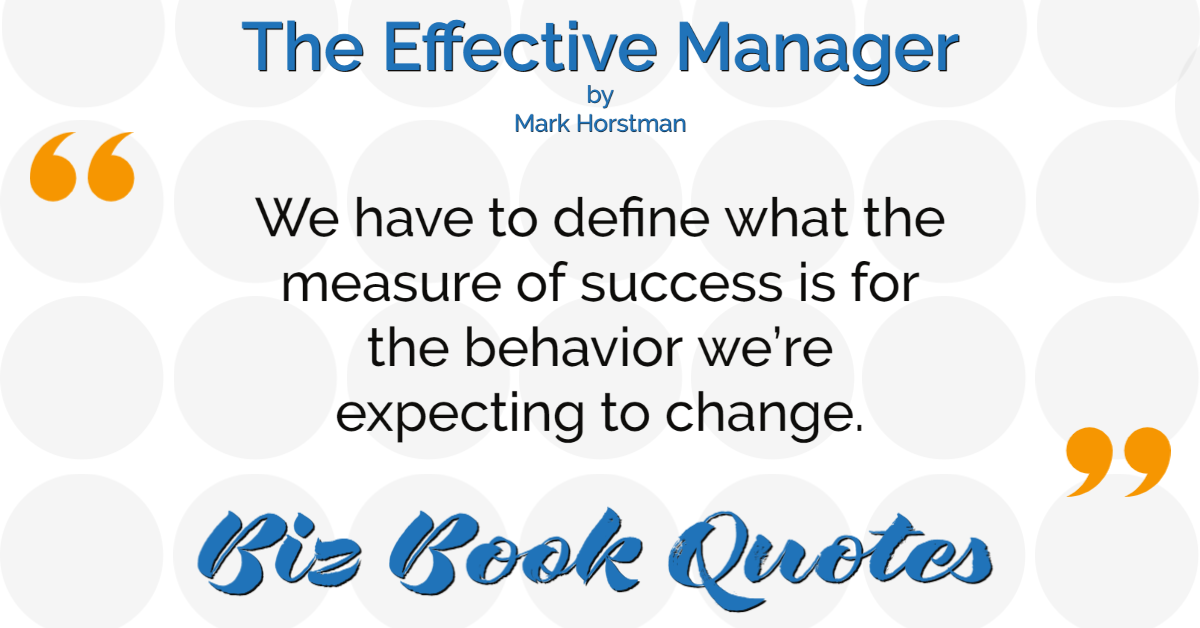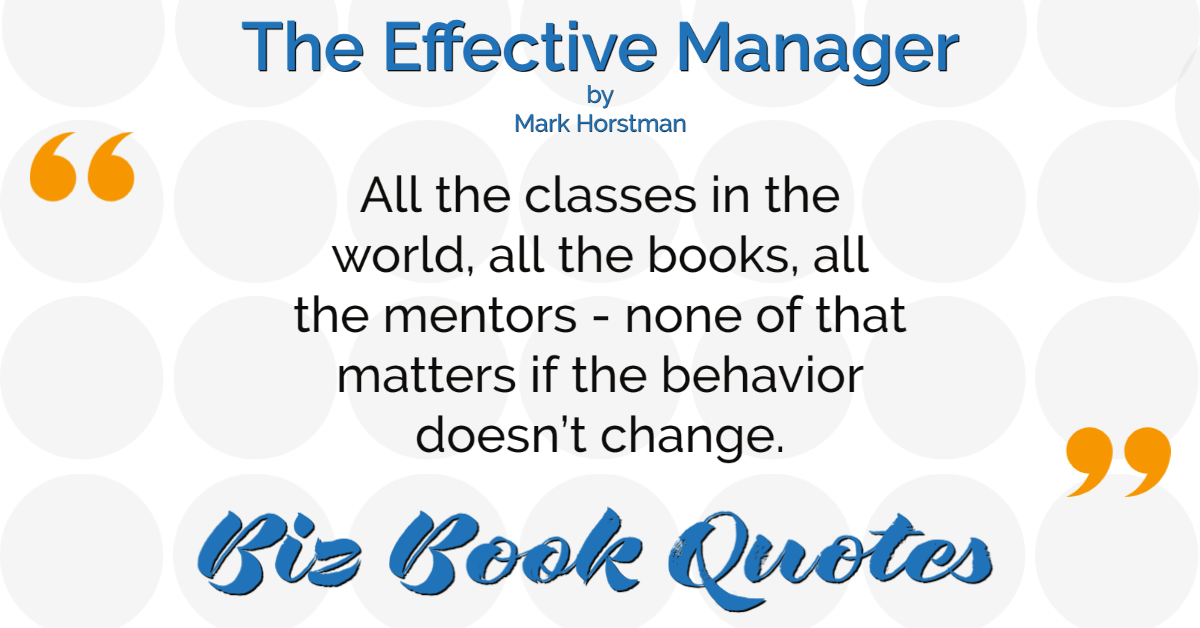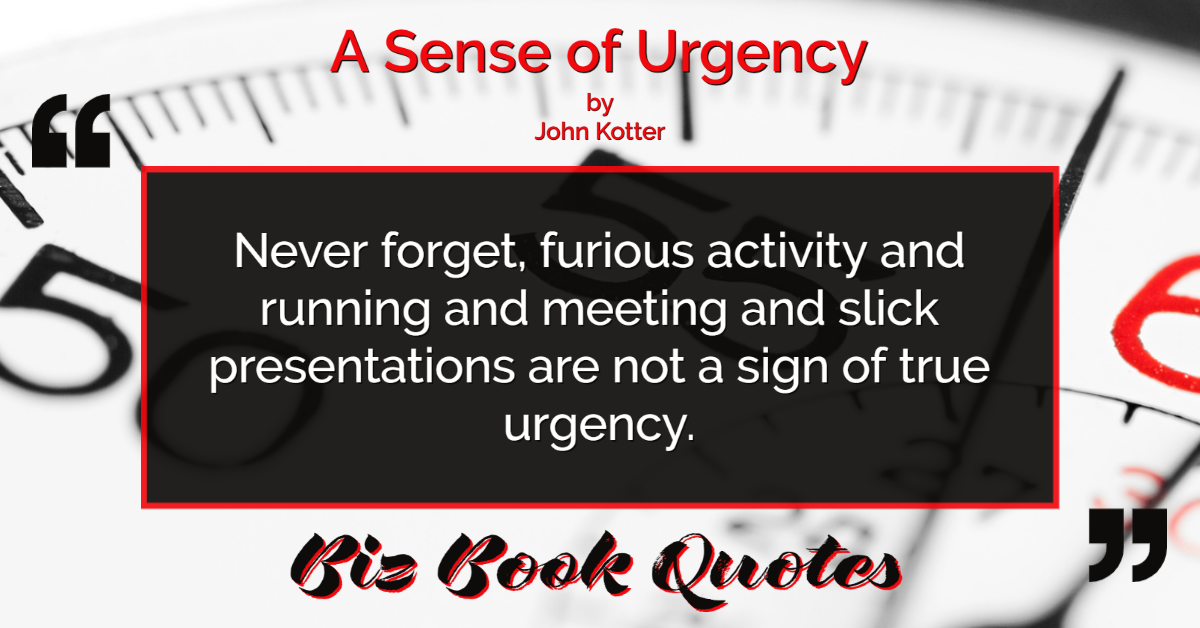 |
Standard feedback is about small behaviors. Systemic feedback addresses the moral hazard of a direct committing to new behavior but then failing to follow through.
|
137 |
 |
…if we promise sanctions, we must deliver them when and how we say they are going to be delivered, if behavior change is not forthcoming.
|
139 |
 |
We have to define what the measure of success is for the behavior we’re expecting to change.
|
150 |
 |
Reachable and reasonable deadlines drive behavior better than anything else.
|
157 |
 |
All the classes in the world, all the books, all the mentors – none of that matters if the behavior doesn’t change.
|
158 |
 |
Anxiety and anger drive behavior that can be energetic – which is why people mistake false for true urgency.
|
23 |
 |
More than thoughts in the mind, it is feelings in the heart that create the unchanging behavior of complacency…
|
45 |
 |
…it is often only a steadily growing wave of people behaving with real urgency each and every day that can conquer built-up cynicism and negativity…
|
115 |
 |
The odds are high that you have not been taught to behave the way you now need to behave. Why can’t you learn? Why not start – today?
|
118 |
 |
…carefully considered action means anticipating how others will behave. It means crafting plans that sequence actions for maximum useful effect in generating true urgency.
|
127 |